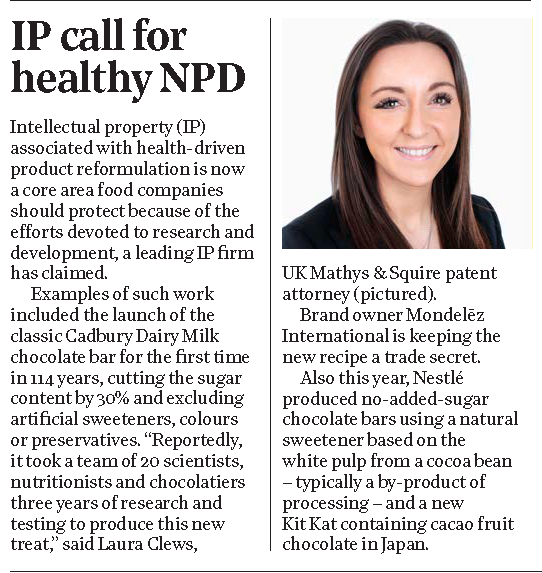Many companies within the food and drink industry are searching for the most effective ways to reformulate their products in response to consumer demands for healthier consumables, along with the new sugar reduction guidelines which were published by Public Health England (PHE).
The required overhaul for many companies to meet these reduced sugar or sugar-free targets means that significant research and innovation continues within this sector.
Two companies working towards this end are Cadbury and Nestlé, who both launched healthier chocolate bars in 2019.
Cadbury reformulated the recipe of its classic Dairy Milk chocolate for the first time in 114 years, reducing the sugar content by 30% without including any artificial sweeteners, colours or preservatives. Reportedly, it took a team of 20 scientists, nutritionists and chocolatiers three years of research and testing to produce this new treat. Mondelez International, (parent company of Cadbury) has announced that the new recipe will remain a trade secret, however, it has been suggested that the reduction in sugar has been made possible by the inclusion of a plant-based fibre to provide a similar taste and texture to the traditional Dairy Milk chocolate.
Nestlé announced that it has been able to produce new chocolate bars containing no added sugar by including a natural sweetener based on mucilage (the white pulp surrounding a cocoa bean), a component which is typically discarded in traditional chocolate-making processes.
Nestlé has also launched a new KITKAT containing the “Cacao Fruit Chocolate” in Japan and is now looking to expand this latest creation across the globe in 2020.
An excerpt of this article (below) was published in the December 2019 issue of Food Manufacture.


